
ANSES portraits: women in science
In honour of the International Day of Women and Girls in Science, we take a closer look at the backgrounds and careers of six women who contribute to science at ANSES.
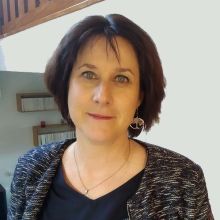
I contribute to food safety for consumer protection and to communication and staff training in my laboratory
For more than 20 years, pathogens that can be transmitted from animals to humans through food have been the common thread running through my research projects. In the Unit for Hygiene and Quality of Poultry and Pork Products (HQPAP) of ANSES’s Ploufragan-Plouzané-Niort Laboratory, I am involved in management tasks and research projects. In particular, my objectives are to gather data on Salmonella bacteria in the pig sector and study the relationship between these bacteria and their environment and hosts, as part of a multidisciplinary approach based on the “One Health” concept (detection, enumeration, characterisation, immune response, composition of the microbiota, etc.).
I also carry out cross-disciplinary tasks for my laboratory: I help staff with their professional training, with the Agency’s Human Resources Development Department. In addition, I organise internal and external communication campaigns for my laboratory, with the Agency’s Department of Communication and Institutional Relations. For me, helping to maintain and develop employee skills and opening up a dialogue with society and with institutional, professional and local partners is a complementary and stimulating way to contribute to science.
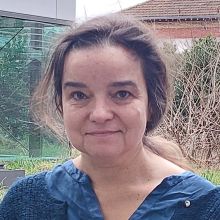
What drives me is being able to address a scientific issue in an emergency or controversial situation and having the opportunity to improve the methodological tools used for risk assessment
I am a veterinarian by training, with a Master’s degree in marine ecology and a PhD in epidemiology and biomathematics. I have been working at ANSES since 2001, carrying out research and supporting the expert appraisals conducted by the Agency’s Risk Assessment Department. My work requires that I tackle a wide variety of challenges: for example, identifying risk factors for the acquisition of foodborne human diseases, determining the main modes of transmission of animal diseases in wildlife, and predicting trends in seafood contamination in relation to climate change.
What all these challenges have in common is that they call on biomathematics to resolve a human or animal health issue. Sometimes, the methodologies used can be transposed from one area to another. In very practical terms, I am required to apply the “One Health” concept as part of my job. This work is often carried out with experts from our Expert Committees and Working Groups and with other scientists from ANSES or even from other partner institutes. I am also asked to take part in Working Groups as an expert for the European Food Safety Authority (EFSA). Lastly, I supervise interns and PhD students, hoping to inspire them to pursue a scientific career.
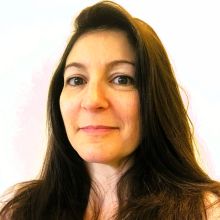
I assess any unusual hazards to consumers, whether they come from new chemicals or from everyday products
A pharmacist-toxicologist by training, I am currently a Toxicovigilance Research Officer. My work involves identifying chemical products, everyday objects and practices that may lead to unusual cases of poisoning. They are unusual because they are caused by a new product, such as nicotine pouches, or a new trend, such as the inhalation of nitrous oxide contained in whipped cream dispensers.
To do this, I work with doctors and pharmacists at poison control centres, whose daily work feeds into a database that enables cases of poisoning caused by chemicals of interest to be identified.
I also work with chemists and with dermatologist-allergists from the dermato-allergology vigilance network. I carry out toxicovigilance studies with the support of this network of experts. All these studies are published, so that as many people as possible can be informed, including consumers, scientific and medical communities, and the public authorities. In parallel, every day, I stay abreast of various health alerts and studies on the topic published in Europe and around the world.
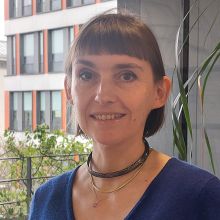
My mission is to encourage scientific collaboration and partnerships at European and international level
After training as a microbiology and food safety engineer and working in risk assessment, I am now a Project Manager for European and International Affairs in ANSES’s European and International Affairs Department (DAEI).
I am in charge of the Agency’s work as the national focal point for the European Food Safety Authority (EFSA). Indeed, the French authorities assigned this role to ANSES, where a team of four people in the DAEI carries out the corresponding activities. Focal points act as an interface between EFSA and national and European stakeholders concerned with food-related health risks. Their work takes the form of support activities in five areas: risk assessment, partnerships, data management, training, and communication. The aim is to encourage collaborative, networking and partnership activities at European level.
In addition to this mission, I also monitor ANSES’s cooperation agreements with European and international partners. A wide variety of activities are carried out, including helping scientific teams to set up projects and providing information on training and cooperation opportunities with European and international partners!
I enjoy being able to speak on behalf of ANSES and more broadly on behalf of France in discussions with European bodies. I also find it inspiring to exchange views with my counterparts in other countries. Something else that motivates me is being able to support scientific teams and see projects come to fruition in this European context. Lastly, I enjoy staying in close touch with science and all its components through the wide variety of themes addressed at ANSES.
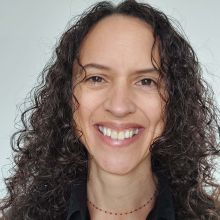
I supervise a team of scientists working to protect the health of honey bees and other pollinators
With a PhD in cellular and molecular biology, I joined ANSES in 2011 and have been Head of the Bee Diseases Unit within ANSES’s Sophia Antipolis Laboratory since 2017.
My role is to coordinate the work of multidisciplinary scientists. We study the effects on bee health of more than a dozen pathogens and chemical contaminants. We are involved in several national and European research projects, providing expertise and scientific support to the beekeeping sector and to the national and European authorities. For example, we can be called on to help manage health crises such as the recent introduction of the small hive beetle on Reunion Island. As a national, European and international reference laboratory for bee health, we manage several networks of laboratories for the detection of bee diseases and we harmonise the diagnostic methods used.
As a scientist by training, I have had to face a number of challenges in order to fulfil all my missions; these have included developing my team management skills and my ability to coordinate activities, as well as learning to operate within a framework of standards and regulations that is far removed from the environments in which I previously worked. At the crossroads between research, reference, expert appraisal and monitoring activities, my job gives me the opportunity to contribute fully to meeting the major current challenge of protecting the health of pollinators.
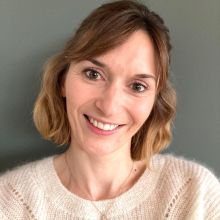
I contribute to advancing our scientific knowledge relating to the microbiological safety of food
I am a pharmacist with a PhD in microbiology. I have been working at ANSES since 2018 as a Scientific Project Leader in the Laboratory for Food Safety. One of my missions is to characterise the hazards associated with the presence of bacteria in the Bacillus cereus (Bc) group in food. This is one of the major causes of food poisoning in humans. In parallel with our monitoring activities, my colleagues and I carry out research projects aimed at developing methods for detecting these bacteria, estimating their prevalence in food, and studying their pathogenic potential and how they spread.
My work is currently focusing more specifically on the Bacillus thuringiensis species, a member of the Bc group, which is unique in that it is used to protect crops due to its insecticidal properties. This work is being carried out in close collaboration with ANSES’s Regulated Products Assessment Department. Our data are regularly shared with the European Commission’s committees responsible for assessing and approving this type of plant protection product. Recently, I also had the opportunity to contribute to the Agency’s expert appraisal work as part of the review of a marketing authorisation application, and I will soon be enthusiastically joining a Working Group dedicated to assessing the health and environmental risks associated with genetically modified plants.